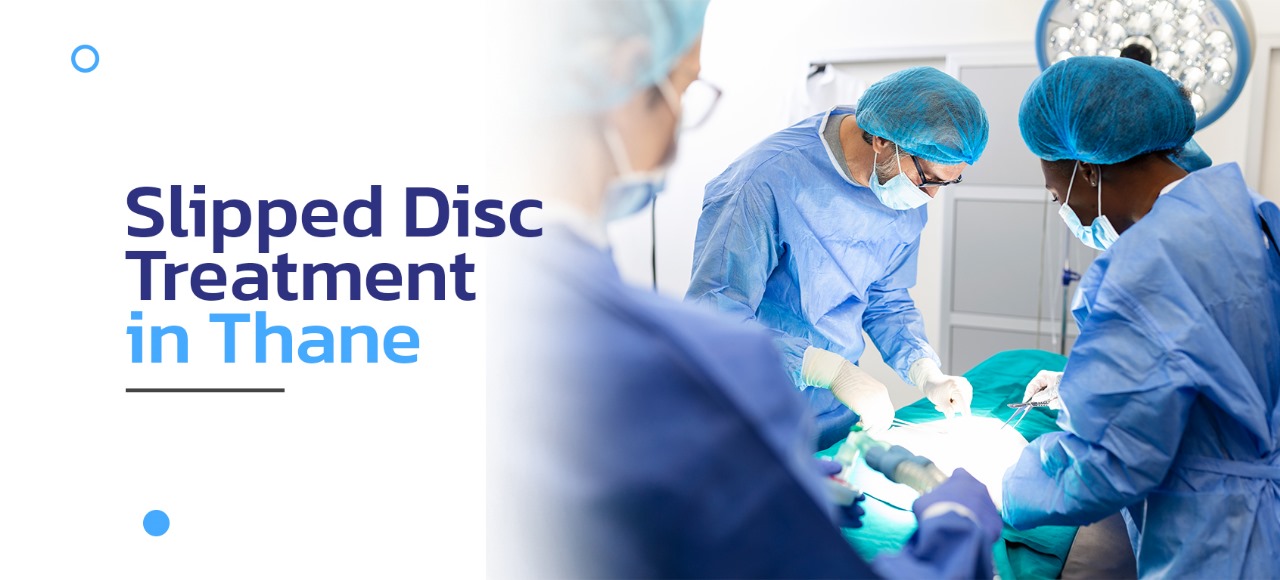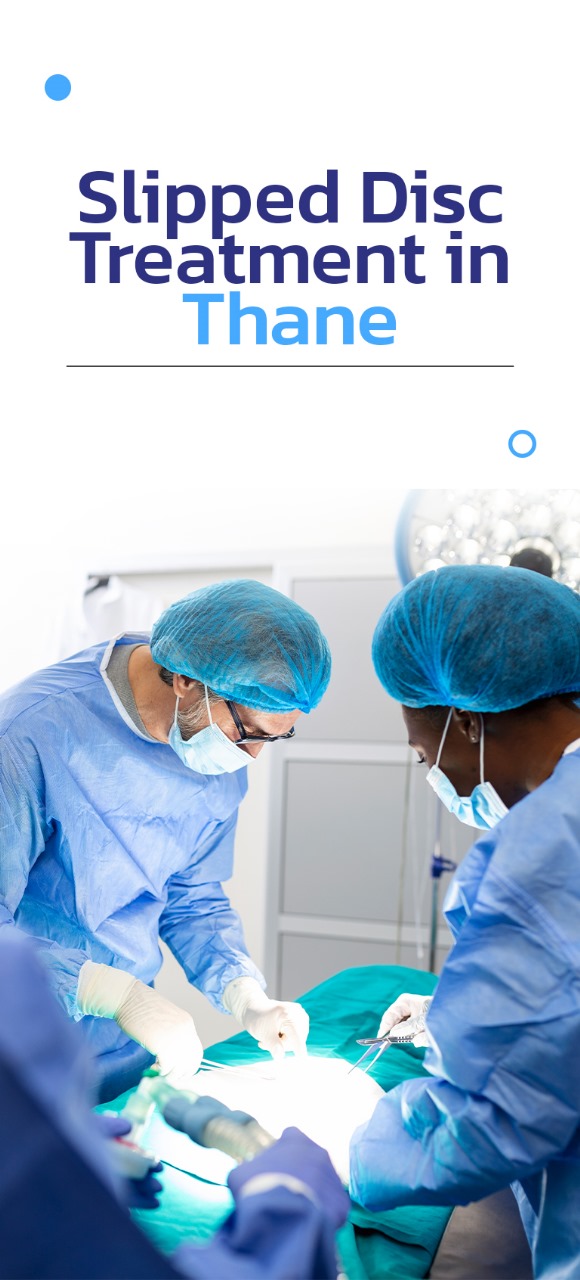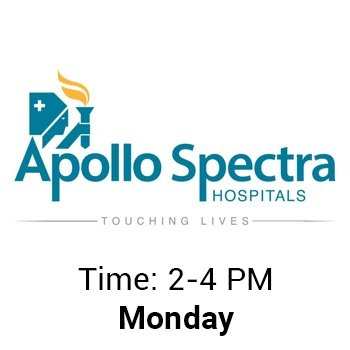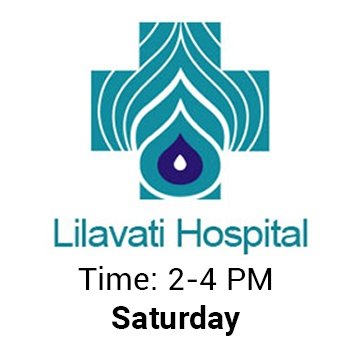

16000+ Patients
4000+ Surgeries
Slipped disc treatment in thane | Expert Care | Comprehensive Care for Instant Pain Relief
A slipped disc, medically known as a herniated disc, can be a painful and debilitating condition. If you’re in Thane and experiencing the discomfort of a slipped disc, you’re not alone. This page is your guide to understanding slipped disc treatment in Thane, where you can find comprehensive care for pain relief.
Understanding Slipped Disc
A slipped disc occurs when the soft inner portion of a spinal disc protrudes through the tougher outer layer. This can result from factors such as age-related wear and tear, injury, or improper lifting. Common symptoms include back pain, numbness, tingling, and weakness. Left untreated, a slipped disc can lead to more severe complications.

MEET DR. PRIYANK PATEL
Dr Priyank M Patel is a Co-Founder and Director of the first integrated spine organization; We Are Spine and treats patients at premiere institutions across Mumbai.
He is dedicated to investigating, evaluating, treating and educating patients with conditions of the spine and the spinal cord using advanced, conservative and sometimes traditional techniques.
Learn about various spine conditions, symptoms and treatments through our website or visit us at our clinic for a personal consultation.

16000 +
Patients
4000+
Surgeries
7+
Surgeons Team
5*
Rating
Our Services
- Sciatica
- Slipped Disc
- Scoliosis
- Kyphosis
- Cervical Spondylosis
- Broken Neck & Back
- Spinal Cord Injury
- Spondylolisthesis
- Spinal Stenosis
- Osteoarthritis
- Tumor
- Syringgomylia
- Cauda Equina Syndrome
- Ankylosing Spondylitis
Plan Your visit
Make a Appointment
Send Med. Records
Working Hours





other locations
APOLLO SPECTRA HOSPITAL
Ujaynagar Compound, Main Gate, Opposite Deaonar Bus Depo, Chembur, Mumbai, Maharashtra 400088
DOCTOR HOUSE
Cumbala Hill, Pedder Road, Mumbai, Maharashtra 400026
JUPITER HOSPITAL
Eastern Express Highway, Service Road,, Next To Viviana Mall, Thane West, Maharashtra 400601
KLS MEMORIAL HOSPITAL
Narvir Tanaji Malsure Marg, Navpada, Irla,, Vileparle West, Mumbai, Maharashtra 400056
BREACH CANDY HOSPITAL
Cumballa Hill, Bhulabai Desai Road, 60A, Mumbai, Maharashtra 400026
THE SPINE CLINIC
Shop no.1, Amrutraj, Gurukul road, panchpakhadi,, Thane west., Thane, Maharashtra 400602
Our Reviews

Symptoms of Slipped Disc
- Back or Neck Pain: Dull or sharp pain in the back or neck, often localized to the affected area.
- Radiating Pain: Pain that radiates down the arms (for cervical disc herniation) or legs (for lumbar disc herniation).
- Tingling Sensations: Pins and needles or a tingling sensation in the extremities.
- Numbness: Loss of sensation or a “pins and needles” feeling in the affected area.
- Muscle Weakness: Weakness in the muscles served by the affected nerves, leading to reduced strength.
- Difficulty Walking: For severe cases, difficulty walking due to leg weakness or pain.
- Loss of Bowel or Bladder Control: In rare cases of severe compression, loss of control over bowel or bladder function (seek immediate medical attention in such cases).
These symptoms can vary in intensity and may worsen with certain movements or positions. If you experience any of these symptoms, consult a healthcare professional for evaluation and appropriate treatment.

How Is Slipped Disc Diagnosed?
Slipped disc diagnosis typically involves a combination of clinical evaluation and medical imaging. A healthcare provider will start by discussing your symptoms, medical history, and conducting a physical examination. To confirm the diagnosis and pinpoint the location and severity of the herniation, imaging tests such as X-rays, MRI (Magnetic Resonance Imaging), or CT (Computed Tomography) scans may be ordered. These tests help visualize the spinal discs and any abnormalities, enabling healthcare professionals to develop an appropriate treatment plan based on the findings. Early and accurate diagnosis is essential for effective slipped disc management.

Causes of slipped disc
- Age: Natural wear and tear on spinal discs as you age, known as disc degeneration, can increase the risk.
- Injury: Sudden trauma, such as from a fall or accident, can lead to disc herniation.
- Improper Lifting: Lifting heavy objects with poor technique or straining during lifting can contribute.
- Obesity: Excess weight places extra pressure on spinal discs, making them more susceptible.
- Genetics: Some individuals may inherit a predisposition to disc problems.
- Repetitive Strain: Engaging in activities that involve repetitive movements or heavy lifting over time.
- Smoking: Smoking may reduce blood flow to spinal discs, weakening them.
- Occupational Factors: Jobs or activities that involve prolonged sitting, driving, or heavy lifting can increase the risk.
These factors can contribute to the development of a slipped disc, and a combination of them may be involved in any given case
How to Prevent slipped disc?
Preventing a slipped disc involves adopting good spinal health practices and lifestyle choices. Here are some tips:
- Maintain a healthy weight to reduce strain on your spine.
- Practice proper lifting techniques, bending your knees and using your legs.
- Stay physically active to strengthen your core and back muscles.
- Pay attention to ergonomics, ensuring your workspace and furniture support good posture.
- Avoid prolonged sitting and take regular breaks to move and stretch.
- Quit smoking to improve blood flow to spinal discs.
- Stay hydrated to maintain disc flexibility.
- Consider exercises like yoga and Pilates for spinal flexibility and strength.
Following these guidelines can help reduce the risk of a slipped disc and promote overall spine health.
Treatment for slipped disc
Herniated Slipped Disc Treatment in Thane divided in to two parts-
- Non-Surgical Treatments for Slipped Disc
- Surgical Treatments for Slipped Disc
Non-Surgical Treatments for Slipped Disc
When faced with dislocated disc treatment in Thane , surgery is not always the immediate answer. Non-surgical treatments offer effective options for managing the condition and alleviating its associated discomfort. Here are four key non-surgical approaches:

Herniated Disc Therapy
Herniated disc therapy encompasses a targeted regimen of exercises and techniques designed to reduce pain and enhance mobility. This specialized therapy not only alleviates pressure on the herniated disc but also facilitates natural healing while strengthening the supporting muscles of the spine.
Physical Therapy or Physiotherapy
A structured program of exercises and stretches, overseen by a physical therapist, plays a pivotal role in improving strength, flexibility, and posture. Customized to individual needs, physical therapy by slipped disc Specialist doctor in thane restores functionality, diminishes pain, and reduces the risk of future disc-related issues.
Chiropractic Manipulative Therapy
(CMT) and Other Chiropractic Treatments:
Chiropractic care, characterized by manual adjustments that focus on spinal alignment, can realign the spine, alleviate pain, and enhance mobility. Additional chiropractic modalities like massage and acupuncture complement this approach.
Anti-Inflammatory Medications and Spinal Injections
Non-steroidal anti-inflammatory drugs (NSAIDs) and epidural injections are valuable in mitigating inflammation and pain. These treatments offer substantial relief from the symptoms associated with a slipped disc, often recommended when conservative methods alone prove insufficient.
Surgical Treatments for Slipped Disc
When non-surgical approaches fail to provide relief or in cases of severe disc herniation, surgical intervention becomes a viable option. Surgical procedures for slipped disc by slipped disc Specialist Surgeon in Thane are designed to alleviate pressure on spinal nerves, reduce pain, and restore spinal stability. Here are four common surgical treatments:
Laminotomy or Laminectomy
What is it?: Laminotomy and laminectomy involve the removal of a portion or the entire lamina (the bony arch of the vertebra) to create more space for the affected disc.
How it helps: By relieving pressure on the spinal cord or nerves, these procedures can reduce pain and improve mobility, making them suitable for severe cases of disc herniation.
Discectomy or Microdiscectomy
What is it?: Discectomy entails the removal of the damaged or herniated portion of the disc. Microdiscectomy is a minimally invasive variation of this procedure.
How it helps: By eliminating the source of pressure on nerves, discectomy and microdiscectomy can provide relief from pain and associated symptoms.

Spinal Fusion
What is it?: Spinal fusion involves the joining of two or more vertebrae using bone grafts or implants. It’s typically used when a slipped disc causes instability or excessive movement.
How it helps: Spinal fusion stabilizes the spine, reducing pain and the risk of further disc-related issues. However, it may limit flexibility.
Artificial Disc Surgery
What is it?: Artificial disc replacement surgery replaces the damaged disc with an artificial one, preserving natural spinal motion.
How it helps: This procedure maintains spinal flexibility while relieving pain, making it a suitable option for select patients seeking to avoid fusion.
Cost of slipped disk treatment in Thane
The cost of slipped disc treatment in Thane varies depending on several factors, including the severity of the condition, chosen treatment option, and healthcare provider. Generally, non-surgical treatments are more affordable than surgical interventions. It’s advisable to consult with local healthcare facilities or specialists for personalized cost estimates and insurance coverage information.
Why to Choose Thane City for Slipped Disc Treatment
In Thane, you have access to a range of treatment options tailored to your specific needs. These may include:
- Medical treatments: These can include pain management through medications and physiotherapy to strengthen the spine and alleviate discomfort.
- Minimally invasive procedures: Interventional techniques like epidural injections can provide relief by reducing inflammation and pressure on nerves.
- Surgical interventions: In cases of severe or persistent symptoms, surgical procedures may be necessary to address the herniated disc and alleviate pressure on the spinal nerves. Your healthcare provider will determine the most suitable approach for your condition.It’s crucial to remember that treatment plans are personalized based on your diagnosis and symptoms.
- Specialized Healthcare Providers in Thane: In Thane, you’ll find reputable healthcare facilities and specialists with expertise in treating slipped discs. Some of the leading names in the field include [List of healthcare providers and specialists], who are dedicated to providing top-notch care for patients like you.
if you’re dealing with a slipped disc in Thane, seeking professional treatment is the first step toward pain relief and improved well-being. With a variety of treatment options and experienced specialists available, there’s hope for a brighter, pain-free future. Don’t hesitate to reach out to us for slipped disc doctor in Thane for right treatment at affordable cost.
For inquiries or appointments with the slipped disc doctor , you can contactus. Additionally, you can fill out the contact form below for more information or to schedule a consultation.
The Spine Clinic in Thane is dedicated to providing specialized care for spine patients. Our team of experienced staff, led by Dr. Priyank Patel, ensures that you receive the highest quality treatment for your spine-related concerns. Trust us as your go-to Orthopaedic Spine Doctor in Thane and the preferred Spine Clinic in Thane. Your spine health is in expert hands with Dr. Priyank Patel, the trusted “Backbone Doctor” in Thane.
The Spine Clinic, where your spine health is our top priority. Dr. Priyank Patel, renowned as a leading Spine Specialist Doctor in Mumbai and the Best Spine Surgeon in Mumbai, proudly heads our department in Thane. With a wealth of experience, Dr. Patel excels in managing acute and chronic spine conditions through medication, physiotherapy, or surgery.
fREQUENTLY ASKED QUESTIONS
Yes, many individuals with a slipped disc can live normal lives after appropriate treatment and rehabilitation. Physical therapy, lifestyle adjustments, and proper care can help manage the condition, allowing for a good quality of life.
In some cases, a slipped disc can heal naturally over time with rest and non-surgical treatments. However, this depends on the severity of the condition. Consult with a healthcare provider for guidance on the best approach for your specific case.
The healing time for a slipped disc varies from person to person and depends on factors like the severity of the herniation and the chosen treatment. Some individuals experience relief within weeks, while others may require several months.
A slipped disc can be permanent if it leads to irreversible nerve damage or if it is not treated appropriately. However, with proper treatment and management, many individuals can achieve significant relief and functionality.
Physiotherapy plays a crucial role in the treatment of a slipped disc. It can help alleviate pain, improve mobility, and strengthen the muscles supporting the spine. While it may not always cure the condition, it can significantly enhance the recovery process and quality of life.
Yes, many slipped discs can be managed non-surgically through therapies, medications, and lifestyle modifications. Surgery is typically considered if conservative treatments are ineffective.
Recovery times vary based on the severity of the condition and the chosen treatment. Some patients experience relief within a few weeks, while others may take several months.
Surgical risks may include infection, bleeding, nerve damage, or failed surgery. Discuss these concerns with your surgeon before the procedure.
Research local healthcare facilities and specialists, read patient reviews, and seek recommendations from your primary care physician to find a reputable and experienced provider.
Many health insurance plans cover the cost of slipped disc treatment, but coverage can vary. Check with your insurance provider to understand your coverage and any out-of-pocket expenses.
Maintain a healthy weight, practice proper lifting techniques, stay physically active, pay attention to ergonomics, and follow your healthcare provider’s recommendations for ongoing spine health.
In most cases, yes. Your healthcare provider will guide you on resuming daily activities and exercise routines based on your progress and recovery.
